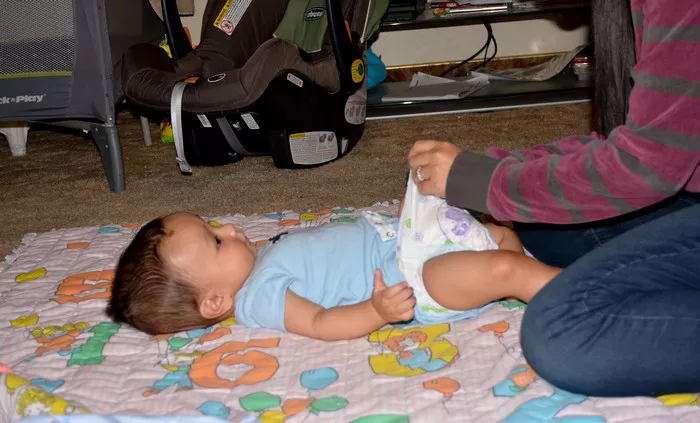The electrifying atmosphere of sporting events, such as the recent 2024 Inter-secondary Schools Sports Association/GraceKennedy Boys’ and Girls’ Athletics Championships, held at the National Stadium, captivated tens of thousands of spectators. Amidst the excitement, however, a pressing concern surfaced, shedding light on an issue often overlooked: the absence of baby changing stations in public restrooms across the island.
Parents and guardians attending the championships, eager to share their love of sports with their young ones, encountered the challenge firsthand. Windell and Renee Rankine, accompanied by their one-year-old son Windell-Azariah, expressed their determination to immerse him in the sporting tradition from an early age. Vanessa Blake, accompanied by her one-year-old daughter Azariah and seven-year-old son Jabari, echoed the sentiment, aiming to provide her children with a memorable experience at the event.
Despite their enthusiasm for the athletic spectacle, both sets of parents faced a common obstacle: the absence of baby changing facilities in the stadium’s restrooms. This predicament left Blake searching for a solution, lamenting the lack of accommodations for parents with infants. The Rankines, meanwhile, resorted to makeshift arrangements, highlighting the need for accessible and convenient facilities.
The dearth of baby changing stations extends beyond sporting venues, as investigations by the Sunday Observer revealed. Public restrooms in supermarkets, restaurants, parks, and government buildings largely lack these essential amenities. While a handful of locations provide such facilities, they are predominantly available in women’s restrooms, posing accessibility challenges for fathers or male guardians.
Medical research underscores the necessity for frequent diaper changes, particularly for newborns and toddlers. Yet, the absence of regulations mandating the inclusion of changing stations in public restrooms exacerbates the challenge faced by parents nationwide. In contrast, jurisdictions like certain American states have enacted legislation requiring such accommodations in public facilities, emphasizing the importance of addressing this issue.
In response to the pressing need for action, Minister of Sport Olivia “Babsy” Grange has pledged to prioritize the enhancement of baby-friendly facilities at the National Stadium. Drawing parallels with the implementation of the Disability Act, Grange underscores the government’s commitment to modernizing infrastructure to better serve all members of society.
Children’s Advocate Diahann Gordon-Harrison acknowledges the oversight regarding diaper-changing facilities and vows to advocate for their inclusion in public spaces. Emphasizing the importance of hygiene and convenience, Gordon-Harrison affirms the Office of the Children’s Advocate’s commitment to conducting assessments and making recommendations to address this fundamental issue.
Efforts to solicit input from the Kingston and St Andrew Municipal Corporation (KSAMC) were unsuccessful, highlighting the need for concerted action and collaboration among relevant stakeholders. Minister Grange, also serving as the minister of gender, pledges to champion legislative measures to address the dearth of changing stations, recognizing the crucial role they play in supporting working mothers and caregivers.
As parents continue to navigate the challenges posed by inadequate facilities, the commitment of government officials and advocacy groups to address the diaper dilemma offers hope for a more inclusive and supportive environment for families across Jamaica.


